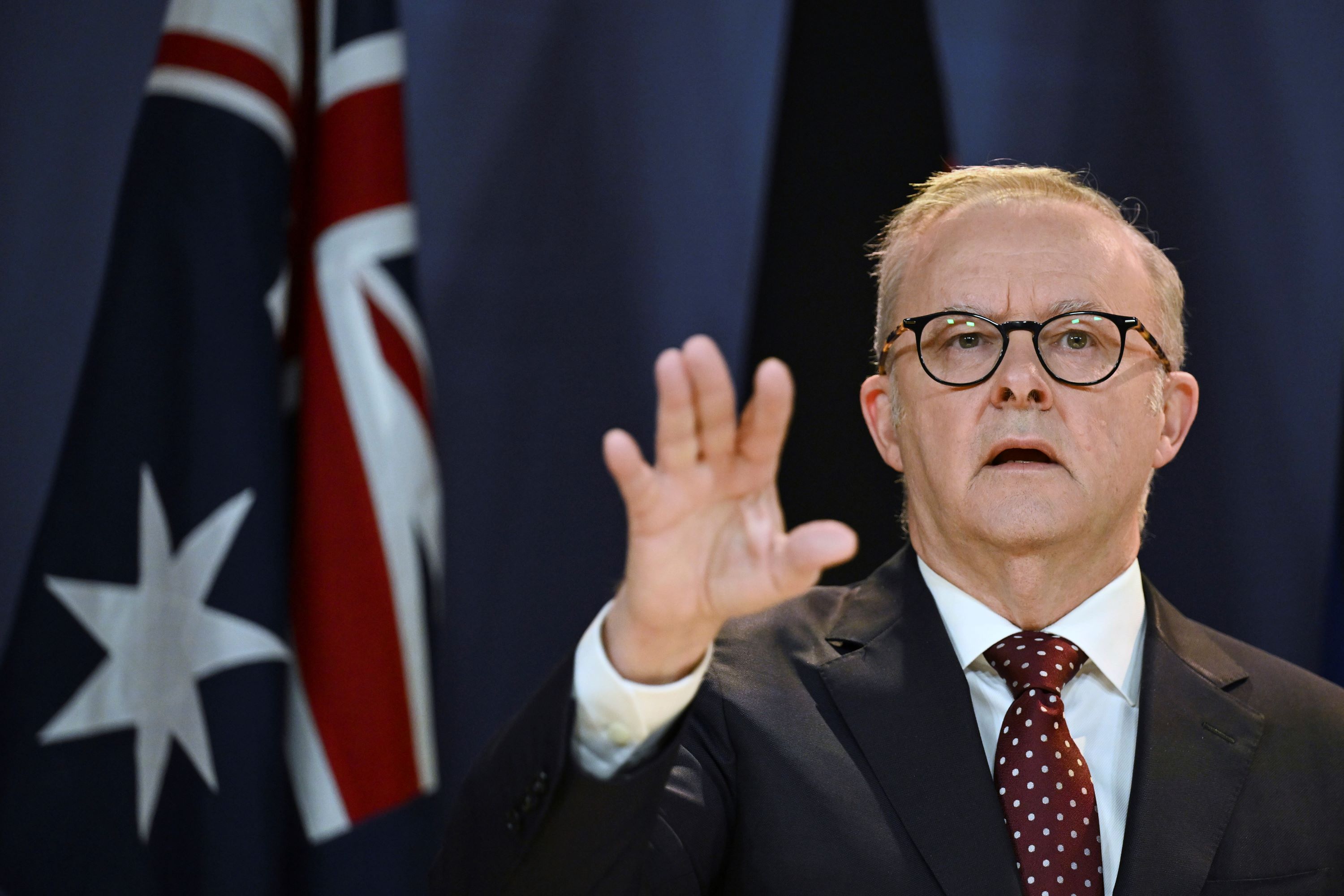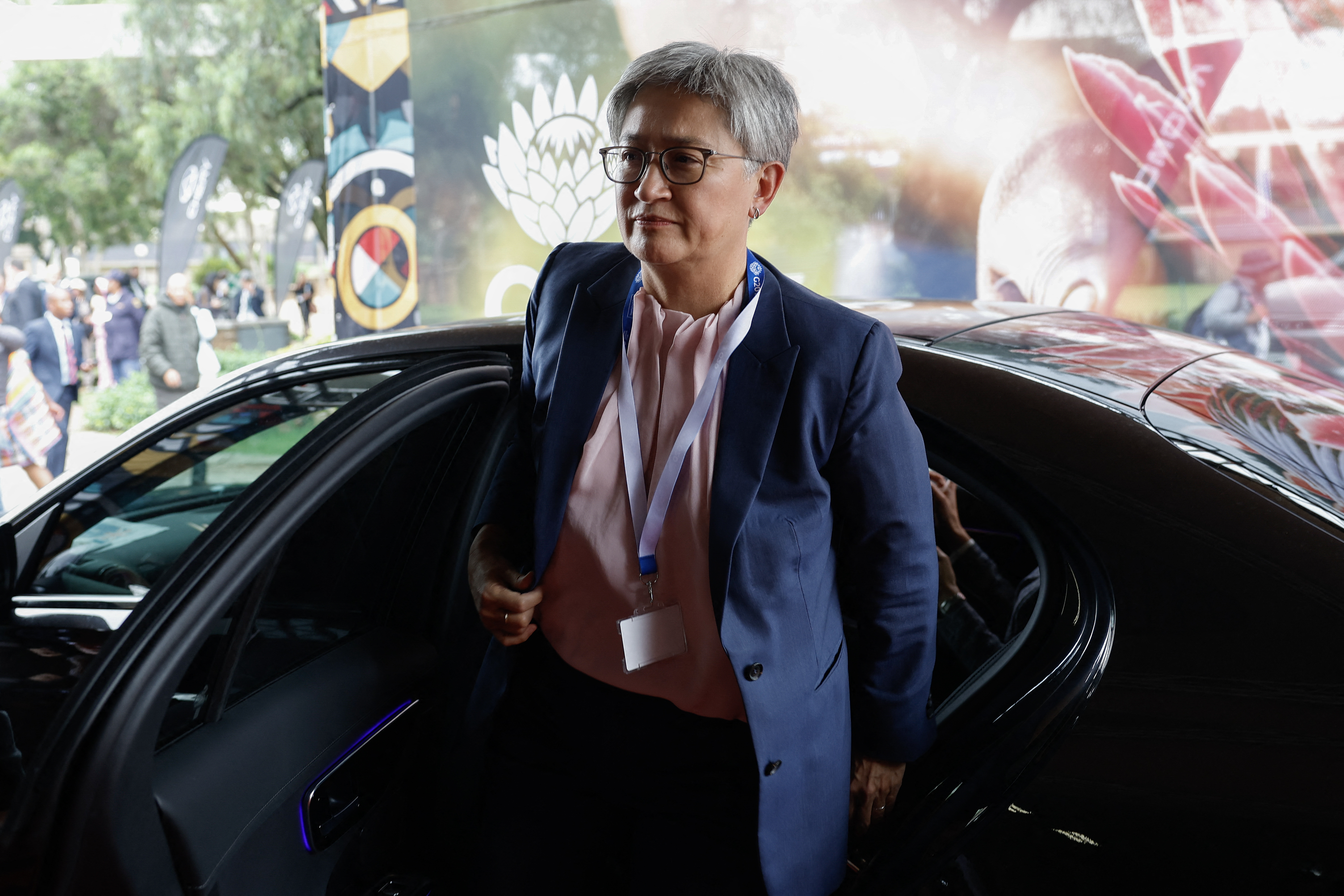
CANBERRA/SYDNEY - Australian Prime Minister Anthony Albanese and his rival in a May election, Liberal Party leader Peter Dutton, said they would stand up for the country's national interests in the face of looming US tariffs that could hit Australian beef.
Australia recorded its first trade surplus with the United States in January as gold exports surged, after decades of trade deficits. The two countries have a free trade agreement that allows duty-free entry for US exports. Albanese has said his government will not retaliate against the Trump Administration with reciprocal tariffs.
Toughening his language in an election campaign, Albanese said on Wednesday he would "stand up for Australian interests", and would not compromise on Australian regulations that the United States is likely to target.
ALSO READ: Australian PM expects 'one-on-one' discussion with Trump on tariffs
Opposition Liberal Party leader Peter Dutton similarly told reporters: "My job is to stand up for Australians".
"If I needed to have a fight with Donald Trump or any other world leader to advance our nation's interests, I'd do it in a heartbeat," Dutton said in a Sky News Australia interview.
Albanese said he "won't compromise" on three areas likely to be targeted, after they were listed in a report on foreign trade barriers released a day earlier by the United States Trade Representative.
"We won't compromise on our Pharmaceutical Benefits Scheme, on our biosecurity or our Media Bargaining Code," he said.
The report listed Australia's ban on US fresh beef products, in place since bovine spongiform encephalopathy (BSE) was detected in US cattle in 2003.

Albanese said Australia was not prepared to change its strict biosecurity controls on meat, because it "could do enormous damage to our meat products".
Australia and the United States are among the world's largest beef exporters.
A slump in US beef production opened the door for Australia to export record amounts of meat last year, growing its market share in North America and Asia and channelling billions of dollars to cattle processors and farmers.
Australia exported A$4 billion worth of beef to the United States last year, its biggest market.
The US trade barriers report also referred to Australia's 2021 law requiring US tech giants, such as Google and Meta, to negotiate with media companies and compensate them for the links that lure readers and advertising revenue.
READ MORE: Housing dream turned nightmare weighs on Aussie voters before national election
In December, Albanese's government said it planned to toughen the rules, and charge big tech firms millions of dollars if they did not pay Australian media companies for news hosted on their platforms.
Exports to the United States were less than 5 percent of Australia's total goods exports, compared to one in four export dollars coming from trade with China, Albanese said.
Australia was focussed on expanding its exports to growing economies in South East Asian and India, he said.
Nine Entertainment newspapers reported on Tuesday night that the government has advised the agriculture industry to expect tariffs of 10 percent or more on beef and other products.
Meanwhile, Foreign Affairs Minister Penny Wong said Australia must diversify its trade relations in response to US tariffs.

The Australian government, she said, is "realistic" about its chances of earning exemptions from a new round of tariffs expected to be announced by Trump.
"President Trump has made it very clear that imposing tariffs is a central plank of his economic agenda," Wong told Australian Broadcasting Corporation (ABC) radio.
ALSO READ: Protectionist shipbuilding measures will create more problems for US
"What we have to do is make sure we are resilient in a time of change, and in the context of both trade and other engagements such as research, we have to work at diversifying our relationships," she said.
The US Trade Representative's office report identified Australia's biosecurity, pharmaceutical and news bargaining laws as unresolved issues affecting American exports.
ALSO READ: Australian PM says US trade targets are ‘not up for negotiation’
Wong said Australia is not willing to "trade away" healthcare or biosecurity in exchange for exemptions from tariffs.
In a separate interview, Murray Watt, the Minister for Employment and Workplace Relations and a fellow member of Albanese's Cabinet, said that the government is "certainly concerned" about the risk of more tariffs being imposed on the Australian industry.
Watt told Sky News Australia that the government has not yet been informed of any outcome from the Trump administration.


